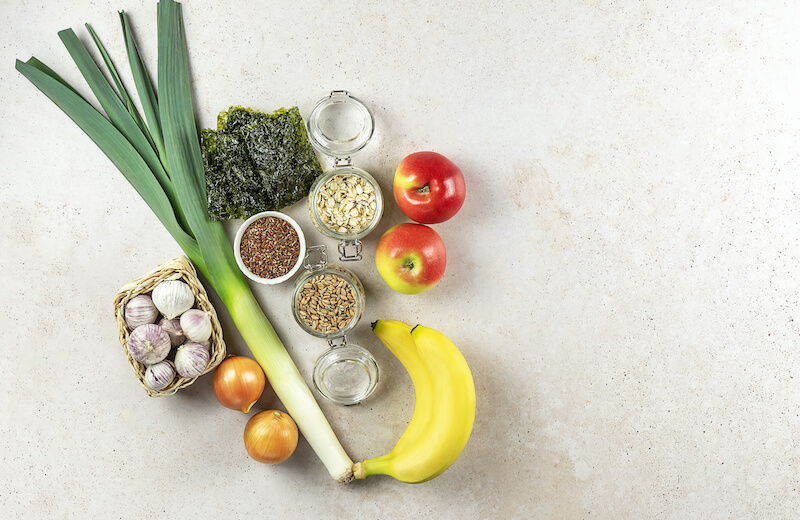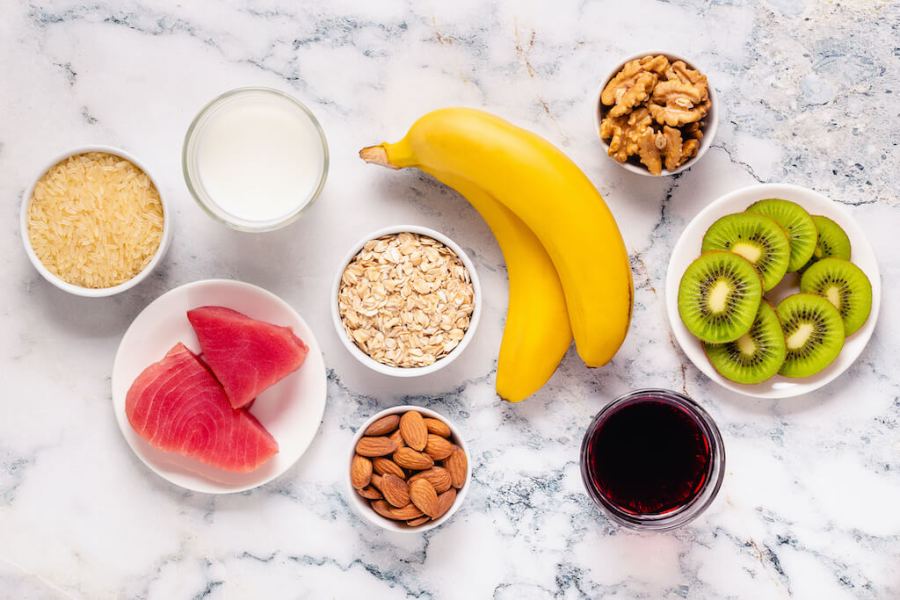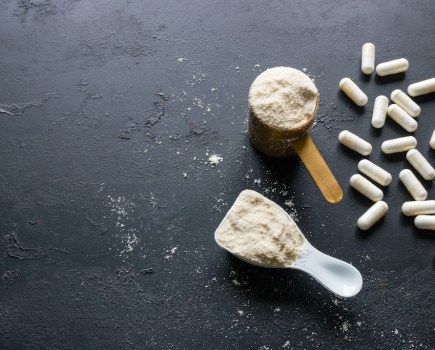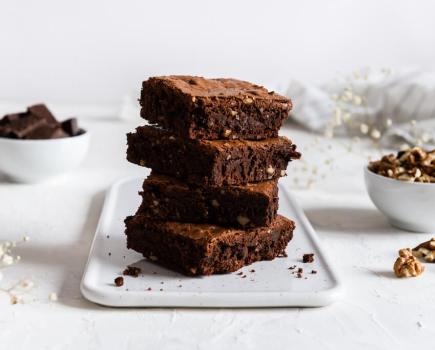What we eat plays a crucial role not just in our physical health, but also our mood and general sense of wellbeing.
Food is not only an energy source – providing calories to fuel the body – but the many nutrients it contains also act as messengers, helping different organs and bodily systems (including the brain) to communicate and function optimally.
Nutritional psychiatry is a growing discipline, focusing on the use of food and nutrients as part of an integrated approach to support good mental health.
Here Hannah Braye, nutritional therapist at Bio-Kult, introduces the mood-boosting foods worth getting more of.
Tryptophan-rich foods
Tryptophan is the pre-cursor to serotonin (our happy hormone). As an essential amino acid, the body cannot create it and we must obtain it from the food we eat.
However, only around 3% of dietary tryptophan is utilised for serotonin production (and this may be reduced even further in times of stress).
Ensuring you have good sources of tryptophan in the diet – such as turkey, beef, bananas, beans, cottage cheese, nuts and seeds – is therefore important.
Interestingly, research also suggests that the composition of our gut bacteria can affect the metabolism of tryptophan, increasing the pool available for conversion to serotonin in the brain – another good reason to look after your gut health.
Fruits and vegetables
Fruits and veg are rich in nutrients, including antioxidants, and it’s reported they may modify brain serotonin status and have a positive effect on mood.
A large review of available evidence in 2019 found that fruit and vegetable intake was associated with decreased risk of depression.
Aiming for two fruit and at least five portions of vegetables a day is a good target, and eating a variety of colours is a good idea, as the different colour pigments reflect the different micronutrients on offer.
For example, orange fruit and veg are a source of beta-carotene (the precursor to vitamin A), while purple varieties contain flavonoids, and red varieties contain the antioxidant lycopene.
Fermented foods and live bacteria supplements
Our gut bacteria (the microbiome) produce numerous neurotransmitters and help to regulate the signals that are sent from the gut to the brain, via neurological, immunological and hormonal pathways.
The gut is increasingly being seen as the second brain, so it’s perhaps unsurprising that studies are showing promising results in mood disorders, from interventions designed to improve gut microbial balance.
Traditionally fermented foods such as live plain yoghurt, kefir (a fermented milk drink), sauerkraut, kimchi and kombucha are a great way to introduce new and varied beneficial microorganisms to the gut. These can be purchased from health food stores, many supermarkets or easily made at home.
Taking a live bacteria supplement – like Bio-Kult Advanced Multi-Strain Formulation – is another way to support healthy microbial balance and potentially improve mood.

Prebiotic foods are types of dietary fibre that feed the friendly bacteria in your gut
Prebiotic foods
A further way to support the growth of beneficial species in the gut is to increase intake of prebiotic foods.
Prebiotics are types of fibre indigestible by humans, but which provide a food source for beneficial species in the gut such as bifidobacteriaand lactobacilli.
Fibre-rich foods (plants) are the best source of prebiotics. Eating a wide variety of plant foods (over 30 different types a week) has been shown to be of particular benefit for microbial diversity in the gut.
Foods especially high in prebiotics include: onion, garlic, leek, spring onion, slightly green bananas, dandelion, Jerusalem artichoke and asparagus.
Omega-3
The central nervous system (CNS) has the highest concentration of lipids (fats) in the body, after adipose tissue. Among these lipids, the brain is particularly enriched with polyunsaturated fatty acids (PUFAs) including omega-3.
PUFAs have received substantial attention as being relevant to many mental health disorders, including anxiety and depression.
Experimental data indicates that omega-3 PUFAs can modulate neurobiological processes involved in the pathophysiology of these conditions. In particular, omega-3 PUFAs are highly anti-inflammatory.
Omega-3 is found in highest amount (and its active forms EPA and DHA) in oily fish such as salmon, mackerel, anchovies, sardines and herring.
Vegetarian sources include flaxseeds, chia seeds and hemp seeds. However, these forms of omega-3 have to be converted by the body into the active forms and not everyone is efficient at that process.
Vitamin D
Certain types of low mood (such as Seasonal Affective Disorder) have been linked to low vitamin D levels during the winter months. Research indicates that vitamin D helps maintain serotonin concentrations in the brain.
Fat-soluble vitamin D is synthesised in the skin from cholesterol after exposure to UV rays. Between October and April in the UK we cannot synthesise adequate amounts of vitamin D from the sun, and it is now well known that many people in the UK are deficient.
If you’re feeling low, getting your vitamin D levels checked and supplementing if needed is recommended.
Vitamin D is found in only a few foods, such as eggs, oily fish and mushrooms, so as we come into the spring/summer months, try and spend some time outdoors each day with your arms/legs and face exposed (avoiding the hot midday sun).
Magnesium-rich foods
Magnesium is an essential mineral utilised in the human body as a cofactor in over 300 biochemical reactions. The anti-anxiety potential of magnesium has been extensively demonstrated in animal research, and a relationship between magnesium status and anxiety is also evident in humans.
For example, anxiety related to stressful exam conditions has been shown to increase urinary magnesium excretion, resulting in a reduction of magnesium levels. Lower dietary levels of magnesium have also been associated with increased subjective anxiety.
Foods particularly high in magnesium include leafy green vegetables (kale, spinach, collard greens), avocado, nuts and tofu.
–








